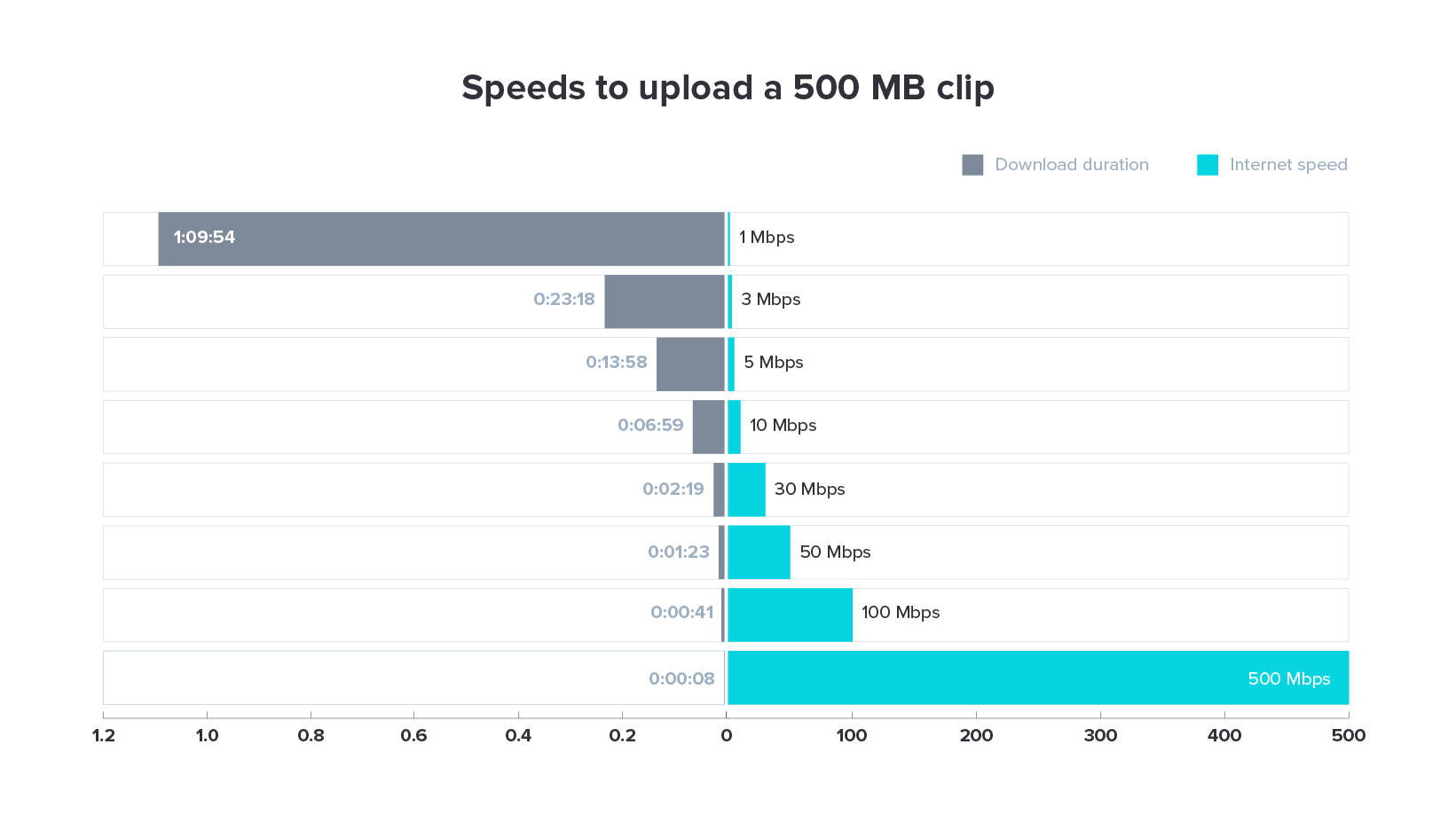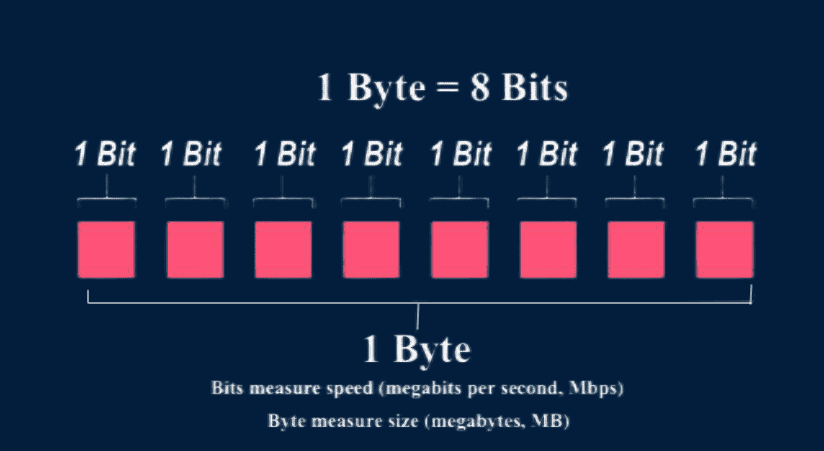A Comprehensive Guide to Measuring Megabits Per Second for Home Usage
A Comprehensive Guide to Measuring Megabits Per Second for Home Usage
Blog Article
How Megabits Per Second Influence Your Online Activities
The idea of megabits per second (Mbps) plays a pivotal duty in forming our online experiences. Greater Mbps can enhance performance and decrease disturbances, while insufficient rates may foster aggravation and inadequacy.
Comprehending Megabits Per Second
When considering web rate, it's essential to understand the principle of megabits per second (Mbps), which offers as a basic measurement for data transfer rates. This metric quantifies exactly how much information can be transmitted over a net link in one second, offering a clear understanding of efficiency abilities - Megabits Per Second. For context, one megabit is equivalent to one million bits, and Mbps is generally utilized to reveal transmission capacity for numerous online activities
A higher Mbps indicates a much faster internet link, enabling customers to execute tasks such as downloading documents, surfing sites, and participating in on the internet video gaming extra successfully. As an example, regular surfing requires around 1-5 Mbps, while streaming high-definition video might require 5-25 Mbps. Recognizing these requirements is essential for establishing the appropriate internet rate required for certain activities.
In addition, the variety of devices connected to a network can influence total performance. Numerous customers streaming, video gaming, or downloading and install concurrently can stress readily available bandwidth, leading to slower speeds - Megabits Per Second. Assessing personal online practices and demands is important in selecting a net plan that lines up with one's needs, making certain a smooth electronic experience
Streaming and Buffering Issues
Streaming high-def material has actually ended up being a staple of contemporary on the internet enjoyment, yet it is often accompanied by discouraging buffering problems. These disturbances can considerably diminish the watching experience, bring about frustration and prospective loss of target market involvement. Buffering occurs when the information transferred from the streaming service is not gotten swiftly sufficient to preserve a smooth playback, frequently due to inadequate web rate determined in megabits per second (Mbps)

Additionally, real-time streaming can be impacted by network blockage, which takes place when numerous tools share the exact same transmission capacity. Maximizing connection speed and making sure adequate Mbps is important for a smooth streaming experience. As streaming solutions continue to evolve, understanding the influence of Mbps on buffering issues stays important for consumers looking for nonstop amusement.
Online Gaming Performance
The impact of internet speed on on-line activities expands beyond streaming, substantially affecting online video gaming performance. In affordable pc gaming, low latency and high data transfer are critical for a seamless experience. A fast link reduces lag, allowing gamers to react swiftly to in-game events, which can be the difference between victory and loss.
Data you could try this out transfer, determined in megabits per second (Mbps), plays a vital duty in sustaining numerous tools and pc gaming systems concurrently. Insufficient bandwidth can bring about dropped links or lowered video game quality, adversely affecting gameplay. For instance, on the internet multiplayer games require significant information transfer, specifically throughout peak video gaming hours when various players are online.
Moreover, the type of game can also dictate the essential net rate. Busy first-person shooters demand greater rates to maintain responsiveness, while turn-based method games might operate reasonably well on reduced speeds. As on the internet gaming remains to progress, with raising visual integrity and more intricate multiplayer atmospheres, the need for higher Mbps will just escalate. Players ought to ensure they have appropriate web speed to boost their video gaming efficiency and general experience. Purchasing a durable web link is crucial for players aiming to optimize their performance and enjoyment.
Video Clip Conferencing Top Quality
In today's digital landscape, video conferencing quality is greatly influenced by net speed, especially in terms of bandwidth and latency. High-quality video calls require adequate data transfer to transmit sound and video information flawlessly. Normally, a minimum of 1.5 Mbps upload and download rates is suggested for common definition video clip, while high-definition video clip conferencing normally demands at least 3 Mbps.
Latency, or the delay in between sending and getting information, also plays an essential role in the customer experience. Reduced latency makes certain that conversations flow naturally without unpleasant stops or interruptions. Preferably, latency ought to be below 150 nanoseconds for reliable communication. Higher latency can bring about echo, lag, and disjointed interactions, which can impede cooperation and involvement during conferences.
Moreover, several individuals in a video meeting can strain offered bandwidth, demanding also higher rates. Network blockage, frequently triggered by simultaneous activities like streaming or downloading, can even more break down video clip top quality. Thus, for organizations depending on video clip conferencing for remote cooperation, recognizing the connection in between megabits per overall and second interaction quality is necessary for maintaining productivity and boosting virtual communications.
Selecting the Right Internet Plan
Picking a suitable net plan is crucial for ensuring optimal performance in various on the internet tasks, especially in setups that demand high data transfer, such as video conferencing and online pc gaming. Megabits her response Per Second. When thinking about a net strategy, it is important to evaluate both the speed and data allocation to match your certain usage needs
For houses with multiple users involving in synchronised tasks, a plan offering higher megabits per second (Mbps) is suggested. Generally, a minimum of 25 Mbps appropriates for conventional streaming and surfing, while strategies surpassing 100 Mbps are more suitable for more extensive tasks. Additionally, consider the nature of your online tasks; video conferencing calls for at the very least 1.5 Mbps submit rate, while on the internet gaming might need click here for more a reduced latency however consistent connection.
It is additionally important to examine your data cap. Unrestricted data strategies can protect against strangling and disturbances, specifically if heavy usage is anticipated. Finally, study solution carriers in your location, as schedule and prices can differ. By thoughtfully choosing an internet plan customized to your demands, you can improve your on-line experience, ensuring smooth, nonstop access to your preferred activities.
Conclusion
In conclusion, the significance of megabits per second (Mbps) in forming on the internet activities can not be overemphasized. A complete understanding of private or family Mbps needs is essential for choosing a proper net plan that effectively supports diverse online tasks and individual demands.

Commonly, a minimum of 25 Mbps is ideal for standard streaming and browsing, while strategies surpassing 100 Mbps are better for more intensive jobs. Furthermore, think about the nature of your online tasks; video clip conferencing needs at the very least 1.5 Mbps post rate, while on-line video gaming might require a reduced latency but constant link.
Report this page